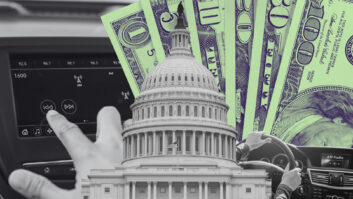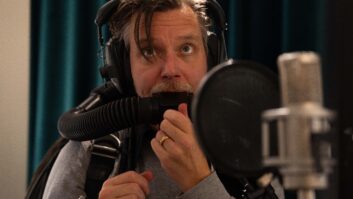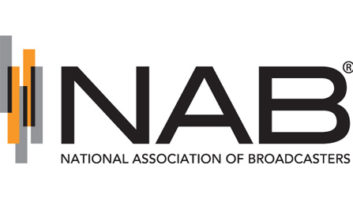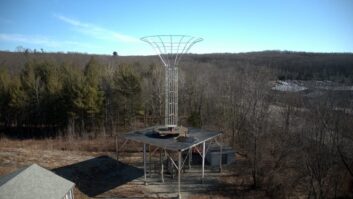
The convention returns to the Gaylord Opryland Resort & Convention Center in Nashville.
credit: Courtesy National Religious Broadcasters
“Cautiously observant” is how Craig Parshall recalls the feelings of Christian broadcasters on the eve of Barack Obama’s inauguration as president four years ago.
Fast forward to 2013, and Obama has begun his second term. Parshall, the senior vice president and general counsel of the National Religious Broadcasters, sees no reason to stop being “vigilant.”
“The regulatory environment in Washington is one where the current administration seems to still have an appetite for more regulation than we would be happy with,” he said in an interview with Radio World.
“We’re feeling pretty much the same as we did four years ago. And an incumbent with a second term, that’s always a different environment from the first term, for political reasons. And that’s the case with anybody, whether it’s President Bush or President Obama.”
With the NRB’s annual convention pending in early March, Parshall spoke with RW about issues he feels will be prominent among Christian broadcasters at the event.
Fundraising — Parshall said NRB and its members are still waiting for FCC action to allow noncommercial educationalstations to use up to 1 percent of their airtime to conduct fundraisers for third-party non-profit groups recognized under IRS code §501(c)(3).
“It seems to be something that has wide support, very little opposition,” said Parshall, “particularly in a bad economy, where noncoms really have to look for opportunities to partner with other non-profits, and to serve communities.”
He thinks action has been delayed because the voluntary spectrum auction effort “has kind of gobbled up all the scenery on the stage, because it’s so complicated.” That auction affects television only, but Parshall said he thinks radio could eventually be affected, too.
Another television-only concern that he thinks may come to visit radio is the requirement for station political files to be posted on the Web, something NRB fought against along with NAB.
The commission, he noted, “indicated in their proceeding that they’re next going to look at radio, enforcing this rule against radio.”
Charitable Deduction — The tax package that resulted from turn-of-the-year legislation to address the fiscal cliff did not include elimination of, or limitations on, charitable deductions on income tax. But revising the rules for such deductions remains on the list of possible tax reform provisions put forward by some members of both parties.

Craig Parshall
Courtesy NRB
Parshall said, “That was very disconcerting, because every study that’s come out has [suggested] the same result: a devastating blow to non-profits, because people will give substantially less.”
Religious Speech — When the Matthew Shepard and James Byrd Jr. Hate Crimes Prevention Act was passed in 2009, NRB became engaged in debate over what Parshall called the free speech implication of the statute.
He said language was added “specifying there had to be acts of violence, not just affronts to people’s sensibilities that would trigger federal crime.”
NRB insisted specific language allowing free speech was required. “Come right out and say, ‘We have no intention of burdening religious speech.’ We had to fight long and hard for that.”
He said NRB is monitoring enforcement of the law, including a case where 16 members of an Ohio Amish sect were convicted last year under the act for forcibly cutting dissenting Amish men’s beards and Amish women’s hair.
“I don’t agree with [the sect’s] tactics. Certainly you don’t grab people and shave their hair against their will.” Though it has not intervened in the case at this time, NRB is among those expressing concern about the free speech implications of prosecuting it as a hate crime.
“Is there a burden on religion in the enforcement of this hate crimes law?” Parshall asked. “The court’s particular reasoning in this case sets a bad precedent for future cases where religious citizens are faced with ‘hate crime’ prosecutions.”
He continued, “There’s the proper legal analysis when it comes to religious groups doing things that are motivated by religion, even if they’re criminal,” he said. “We’re not arguing with the result that they were found guilty. We’re arguing that the court did not, from what we can see, apply the right legal standards to protect religious liberty rights of everyone.”
KGLE Reaches a ‘Milestone’
KGLE(AM) will be among a record number of organizations receiving the NRB Milestone Award this year at the NRB 2013 Convention & Exposition.

The award is presented to Christian communicators who have demonstrated “exemplary service in the industry for five decades or more.”
The station recently turned 50. Heard at 590 kHz, it is based in Glendive, Mont. It signed on as a commercial AM and was a part of the Christian Enterprise Network until the fall of 1992.

“Because of the economic downturn in Eastern Montana at that time,” NRB wrote in its announcement, “the network felt it could no longer afford to operate the station and decided to either sell KGLE to a local listener group or allow it to ‘go dark’ at the end of that October if a local buyer was not found.”
It said KGLE’s listeners rescued the station, and the corporation Friends of Christian Radio formed and assumed ownership in early 1993. “Since that time, the Lord has blessed the efforts of FCR, and their listeners have faithfully supported the ministry with their prayers and gifts.”
Shown in the photo are Frank Stella, Diane Odenbach, Ellen McBride, Cody Ross and Jim McBride.
Bott Radio Network, Ambassador Advertising Agency, Evangelism Explosion International and Northwestern Media are among others to receive the Milestone honor.
A sampling of other award recipients:
• Radio Station of the Year — KVNE(FM), Tyler, Texas
• Radio Program of the Year — Moody Radio, “The OneCry Prayer Summit”
• Most Creative Online Initiative — Gospel for Asia
• Best Use of Social Media — Focus on the Family, “Today I Will”
• Best Broadcast Website — Salem Web Network, Godtube.com
For more information see nrbconvention.org.
New Media — Parshall chuckled when he began to discuss religious broadcasting and new media.
“First of all, the new media is no longer new. It is entrenched in everybody’s life. It’s not either traditional media, over the air, and then the new media. Every radio and television station has a Web presence, and live streaming.”
As an example of the continuing convergence, he pointed to the hoped-for expansion of FM reception capability in cellphones, which would help FM broadcasters of all formats. “So it’s no longer a one or the other, either this or that.”
Future of Media — The FCC’s Future of Media project was a hot-button issue for NRB over the past several years. However, according to Parshall, “We thought the Future of Media report that finally got issued [in 2011] was very measured, and actually was handy.
“In fact, I’ve gone back to that report several times, to use it as a general overview of the state of the media, both traditional and digital, and just kind of sum up where we’ve been, where we are, and maybe places that we ought to go.”
Internet Speech — Last fall Parshall proposed a “Free Speech Charter for the Internet.”
He called it “a charter of rights that we feel new media companies such as Apple, Google and Facebook should consider adopting, to ensure the free speech rights and religious liberty rights of their users.” NRB has said that the control over communications that can be brought to bear by a few media giants represents a “breathtaking” threat to freedom of discourse if those companies happen to disagree with what others are saying.
At the time of its release, NRB cited incidents such as the Chick-fil-A protests, wherein NRB felt that certain positions were discriminated against by some Internet media companies.
“Basically we said: ‘Just follow the First Amendment,’” Parshall summarized. He’s said he’s hoping that powerful new media companies will opt to “self-regulate.”
Other Issues — Regarding content costs, Parshall said he keeps hearing from organization members that “our royalty fees are too high. We’re having a hard time paying all of them.” It is an issue he stated he believes will not go away any time soon. On low-power FM, he said it’s too soon to determine the impact on NRB members of the expected new LPFM filing period. But, he said, “There’s a world of difference between the opportunity that the [FCC] intends to create, and how it filters down to our people.” And regarding HD Radio, he said the format overall “has just not caught on” with many of the organization’s members.
Craig Johnston is a frequent contributor to Radio World and other NewBay Media publications.












